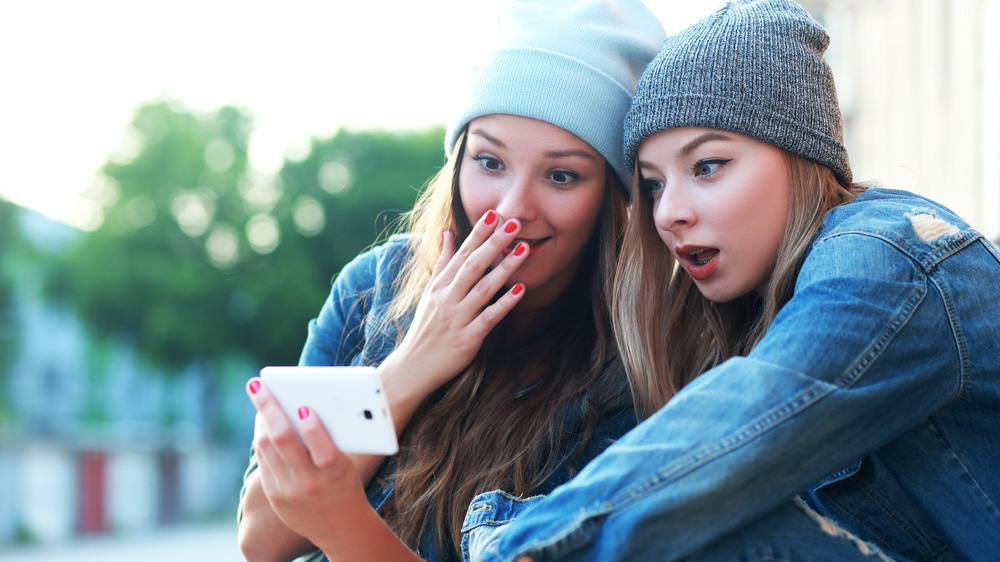Social media has become an essential part of our daily lives. They connect us, inform us, entertain us… but what about their impact on our emotional well-being? Between the illusion of perfection, digital addiction, and social validation, these platforms play an ambiguous role. Sometimes sources of inspiration, sometimes generators of anxiety, they shape our emotions in ways we don’t often realize. Let’s delve into the relationship between Social Media and Emotional Well-Being and the depths of this digital influence and discover how to regain control to preserve our inner balance.
1- The Intoxication of Connection: Dopamine and Digital Addiction
Every notification, every “like” triggers a dopamine rush, the neurotransmitter of pleasure. This mechanism, comparable to that of drugs or gambling, creates an insidious addiction. Platforms exploit this reaction by encouraging constant interaction, thus reinforcing our need for social validation.
👉 The Trap? The more we check our social media, the more we want to return, feeding a vicious cycle that can generate stress and anxiety when we’re disconnected.
How to protect yourself?
- Limit screen time using time management apps.
- Set phone-free periods, especially before bed.
- Engage in offline activities to recalibrate your brain.
2- The Illusion of Perfection: The Impact of Social Comparisons
On Instagram, Facebook, or TikTok, we are bombarded with carefully edited images and idealized lives. Comparisons become inevitable: our daily life seems dull in contrast to these spectacular setups.
👉 The Consequences? Lower self-esteem, chronic dissatisfaction, and, in some cases, disorders like anxiety or depression.
How to break free?
- Follow accounts that promote authenticity and diversity.
- Remember that social media only shows one facet of reality.
- Practice gratitude to cultivate a more positive perception of your own life.
3- The Dictatorship of Social Validation: When “Likes” Govern
Our Emotions “Likes,” comments, and shares have a powerful effect on our mood. A post that receives little engagement may make us doubt our worth, while a viral post boosts our ego.
👉 The Danger? Our happiness becomes dependent on others’ opinions, which can lead to a frantic pursuit of virtual recognition and emotional fragility.
How to detach from it?
- Post for yourself, not to please others.
- Remember that your value doesn’t depend on an algorithm.
- Disable notifications to reduce the obsession with numbers.
4- Harassment and Toxicity: When Social Media Becomes Oppressive
Platforms are also a playground for criticism, harassment, and hateful speech. A simple negative comment can be enough to ruin a day or even affect self-esteem in the long run. Social Media and Emotional Well-Being are extremely connected.
👉 The Risks? A sense of insecurity, post-traumatic stress, social isolation…
How to protect yourself?
- Block and report malicious accounts.
- Create a positive and supportive online environment.
- Avoid toxic debates and spaces conducive to conflicts.
5- Positive Effects: Inspiration and Emotional Support
Fortunately, not everything is bleak! Social media can be a real breath of fresh air. They allow us to access inspiring content, find support in caring communities, and learn about essential topics.
👉 The Trick? Use these platforms intentionally: follow motivating accounts, surround yourself with positive people, and avoid negative content.
6- Regaining Control: Adopting Healthy Digital Hygiene
In the face of these multiple influences, how can we navigate social media wisely without becoming slaves to them?
Concrete Strategies:
✅ Take regular digital breaks.
✅ Cultivate real-life relationships so you don’t rely entirely on the virtual world.
✅ Practice mindfulness to better manage your emotions online.
Conclusion : Social Media and Emotional Well-Being
Social media is a powerful tool, but its impact largely depends on how we use it. By adopting a conscious and balanced approach, we can transform these platforms into allies of emotional well-being rather than sources of distress. So, are you ready to scroll in moderation?
sources :
- American Psychological Association – Social Media Use and Mental Health 🔗
- Harvard Business Review – The Dark Side of Social Media 🔗
- Journal of Medical Internet Research – Social Media and Anxiety Disorders 🔗
- Nature Human Behaviour – The Psychological Effects of Social Networks 🔗
- Cambridge University Press – Digital Well-being: A Psychological Perspective 🔗
Did you like this article? Share it…
but most importantly, take care of your digital well-being! 🚀💙


